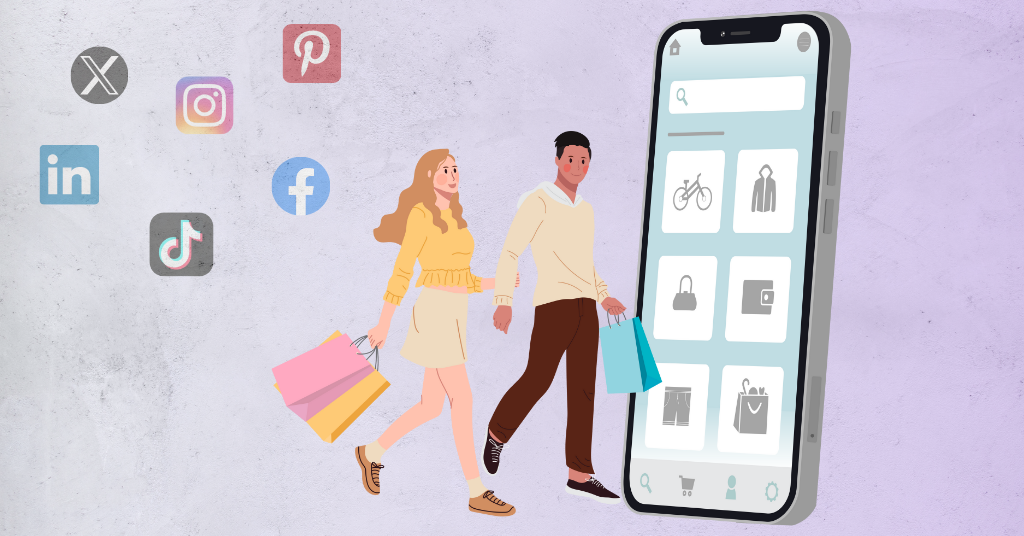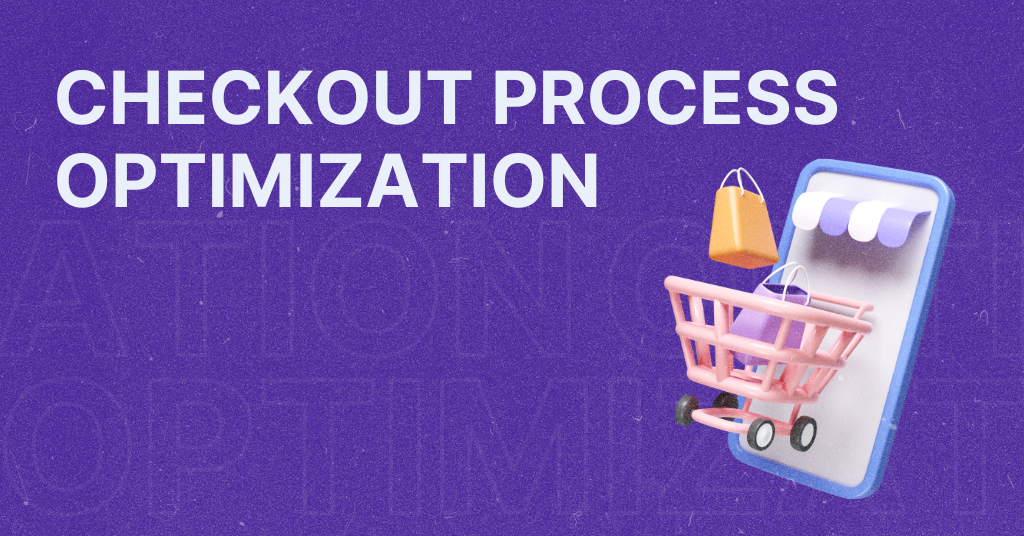
The role of social media in mobile commerce success
Social media’s influence in the mobile commerce landscape goes beyond conventional marketing strategies, offering businesses unprecedented opportunities to connect with their target audience and optimize their overall shopping experience. In this article, we will cover some of the key ways in which social media contributes to the success of mobile commerce.
Increased reach and visibility
Social media platforms boast an astonishing user base, with billions of active users worldwide, making them an invaluable resource for m-commerce businesses to expand their reach and visibility on a global scale. Establishing a strong and consistent presence on popular platforms such as TikTok, Facebook, Instagram, Twitter (currently known as X), LinkedIn, and Pinterest allows businesses to tap into diverse demographics and connect with potential customers from various regions and backgrounds.
By creating engaging, shareable, and relevant content, businesses can attract the attention of new audiences and inspire their existing followers to share the content, thereby extending the brand’s reach even further.
Additionally, the option of utilizing paid advertising on social media provides businesses with powerful targeting tools that ensure their promotions are directed towards users who are most likely to be interested in their products or services, optimizing their marketing efforts for maximum impact.
Customer engagement and interaction
Social media platforms act as a direct and real-time communication channel between businesses and their customers, fostering valuable customer engagement and interaction. Through comments, direct messages, and replies, customers can easily voice their opinions, ask questions, and share feedback with the brand. This personalized interaction creates a sense of connection and authenticity, making customers feel valued and heard.
Prompt and helpful responses to customer inquiries demonstrate excellent customer service, further building trust and loyalty. Businesses can also take advantage of social media’s interactive features, such as polls, surveys, and live streams, to actively involve customers in shaping their products or promotions, ultimately strengthening the bond between the brand and its audience.
Social proof and user-generated content (UGC)
User-generated content (UGC) refers to content created by customers, such as product reviews, testimonials, photos, and videos. Social media platforms are an ideal space for customers to share their experiences with products and services.
Positive UGC reinforces the credibility of the brand and its offerings, assuring new customers of the quality and satisfaction others have experienced. To encourage UGC, businesses can run creative contests, invite customers to share their success stories, and prominently showcase customer reviews on their social media profiles, thereby fostering a community-driven marketing approach that resonates with audiences.
Social shopping integration
Social media platforms have introduced features that enable social shopping. These integrations of social shopping features have revolutionized the mobile commerce landscape. Platforms such as Instagram and Facebook now offer businesses the ability to create shoppable posts and Stories, allowing them to tag products and provide direct links to purchase pages.
For instance, Instagram’s “Shop” feature empowers businesses to tag products in their posts and stories, allowing users to conveniently access product details and make purchases without leaving the app. The “swipe-up” feature in Instagram Stories lets businesses include links to products or promotions.
Similarly, Facebook offers a dedicated “Shop” section for businesses to showcase their products, streamlining the buying process.
Social commerce integrations can help m-commerce businesses to reduce the barriers between product discovery and purchase. This seamless integration between social media content and the shopping experience eliminates friction in the buying journey, making it effortless for customers to discover and purchase products directly from their favorite social platforms. By leveraging these social shopping features, m-commerce businesses enhance user convenience and satisfaction, leading to higher conversion rates and increased customer loyalty.
Targeted advertising
Social media platforms provide businesses with robust advertising tools that enable them to precisely target their desired audience based on demographics, interests, behaviors, and other factors. This level of targeting ensures that advertisements reach users who are most likely to be genuinely interested in the products or services offered, optimizing the return on investment (ROI) for advertising campaigns.
Businesses can create customized ad campaigns that resonate with their target market, thereby improving brand visibility and fostering higher engagement rates. The ability to analyze the performance of these targeted campaigns through detailed mobile metrics empowers businesses to refine their marketing strategies continuously and drive higher conversion rates.
Influencer marketing
Influencers are individuals with a significant following on social media, often in specific niches or industries. Influencer marketing has emerged as a game-changing approach within the realm of social media and m-commerce. By collaborating with social media influencers m-commerce businesses can effectively tap into the trust and loyalty of these influencers’ engaged audiences.
Influencers can showcase products, provide authentic reviews, and promote exclusive offers, leveraging their influence to attract a wide and receptive audience. As influencers have established trust with their followers, their recommendations can carry considerable weight and positively impact brand awareness and sales.
Social sharing and virality
Social media thrives on the culture of sharing captivating and engaging content. Businesses can leverage this trend by creating highly shareable content, such as visually appealing images, informative videos, or entertaining posts that resonate with their target audience. When users find such content compelling, they are motivated to share it with their networks, leading to a snowball effect of exposure and potentially going viral.
Viral content can generate a surge of brand exposure, dramatically expanding the reach of the business and attracting a substantial influx of website traffic and mobile app downloads. By crafting content that aligns with the interests and preferences of their audience, businesses increase their chances of achieving virality and further amplifying their brand message.
Customer insights and data analytics
Social media platforms offer customer insights and data analytics, providing businesses with valuable information on audience behavior and preferences. Analyzing post engagement, audience demographics, peak activity times, and other metrics enables businesses to gain a deeper understanding of their customers.
These insights empower businesses to tailor their marketing strategies, content, and promotions to better resonate with their target audience, ultimately driving higher levels of engagement and conversions. Additionally, this data-driven approach assists businesses in making informed decisions about their products, services, and overall brand positioning.
Conclusion
The role of social media in mobile commerce success is multifaceted. It involves leveraging the reach and engagement potential of social platforms, encouraging user-generated content and social proof, integrating social commerce features, targeting ads effectively, collaborating with influencers, creating shareable content, analyzing customer data, and optimizing the mobile shopping experience through social media. By strategically utilizing these elements, m-commerce businesses can drive growth, build brand loyalty, and succeed in the competitive mobile commerce landscape.
Let’s book a 30-min mobile strategy session and give your shop a boost.
Let’s book a 30-min mobile strategy session and give your shop a boost.


